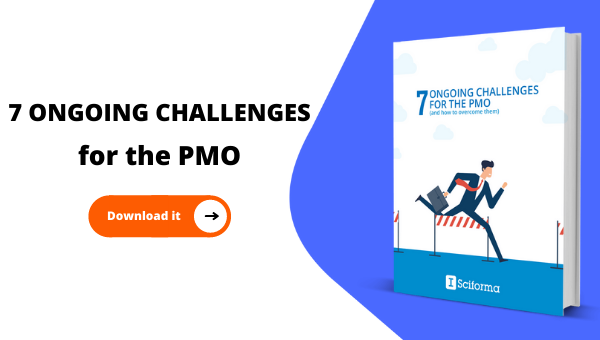Any self-respecting Project Management professional is at least remotely familiar with Agile approaches to project delivery. However, beyond the Agile framework for software development, the Project Management discipline may also involve another form of agility: business agility. Defined as “agility in an organization’s culture, leadership, strategy, and governance that adds value to all stakeholders who operate in uncertain, complex, and ambiguous environments”, business agility can significantly help Project Management professionals to reduce execution cycle times and bring better products or services to market, faster.
Here are some of the key enablers of business agility in Project Management.
Embracing Uncertainty & Change
It all starts with the right mindset. The world is more volatile and unpredictable than ever in history. Change is everywhere, and it’s happening faster and faster. Businesses and organizations need to adapt to:
- rapidly evolving consumer expectations
- increasingly frequent technology revolutions that completely reshuffle competitive landscapes
- heightened complexity from increasingly stringent regulatory frameworks
These trends are obviously impacting the daily work of Project Management professionals. An in-flight product development project might come to a halt because a competitor beat your firm to market. Sudden changes in government economic stimulus policy can cause the budget of some projects to shrink overnight. With increased employee turnover, you can never be sure that the key skilled resources critical for project success won’t quit. In a nutshell, the initial assumptions based on which projects are planned are more and more unlikely to stand the test of reality.
This means that project managers and PMOs need to stand ready for anything to happen and be prepared to respond with speed and intelligence to unexpected events and issues. In other words, they need to think and act in an agile manner.
Strong Technology Focus
Having a change-friendly mindset is therefore of paramount importance to keep up with the times. However, competing successfully in today’s markets also requires the support of robust technology tools and capabilities.
- Work automation and productivity tools can free up project teams from low-added-value tasks and reduce the overall administrative overhead. As a result, they enable the organization to dedicate more energy to decision-making, innovation, or ideation.
- Consolidating data into a central repository with real-time update capabilities enhances visibility into project activity at the enterprise level, facilitating understanding and decision-making.
- AI-powered analytics and simulation tools enable decision-makers to explore multiple hypothetical scenarios and assess the effectiveness of multiple potential courses of action.
All of these technology blocks empower PM and PPM leaders to adapt better and faster to unforeseen circumstances.
An Enabling Process
If you thought of business agility as a sort of “Get Out of Jail Free card” that would spare you the hassle of designing and maintaining a solid PPM process, think again. Agility is not a fancier synonym for disorganization. Organizational discipline is one of the key reasons why agile project organizations manage to react swiftly to the unexpected, to change course when needed, to identify and evolve or scrap what doesn’t work any more. Without a sound process governing the way projects are managed and the interactions between teams and workers, it is virtually impossible for an organization to pivot effectively.
However, it is of extreme importance to make sure that the process that you define and implement to structure project activity is not too cumbersome. Ideally, an agile project organization should opt for a process that encourages team empowerment, reinforces collaboration and the sharing of ideas and best practices, minimizes administrative overhead, and promotes bottom-up innovation.
Suggested resources for more information and insights about agility:
- Why There’s No (Longer) Such Thing as “Business as Usual”
- What Type of Businesses and Organizations Are Using Agile PPM?
- Why You Should Make Sure Your Business Doesn’t Stay Behind the Digital Curve







Benoît Boitard
Benoît has multiple professional experiences, working in particular as a digital strategy consultant, both in emerging start-ups and in large companies. These diverse experiences have imbued him with a global vision of project management in traditional and agile working environments.